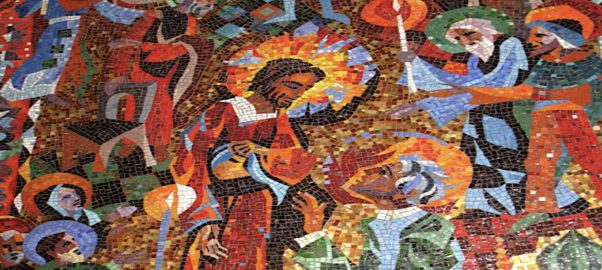
Key Scriptures: Matthew 26:26-75; Mark 14:22-72; Luke 22:14-71; John 17:1-18:27
We are now in the central act of this divine drama of salvation. Notice the extensive details in all the Gospels. Floyd McClung, summarizing our Lord’s Passion, declared, “The Lord used a criminal act of evil persons against an innocent man and turned this into the foundation of their forgiveness.”
This is the moment of Jesus’ agonizing prayer and personal decision to take up the Cross. In Matthew, Mark, and Luke, we have a window into Jesus’ human feelings. Jesus knew it was God’s plan, yet the suffering (and horrible separation) of the Cross caused him to cry out to the Father, and, after his cry, to submit to God’s plan for our salvation. We were the “joy set before him” (Hebrews 12:1-3) that propelled this decisive act of love. As he is crying out, John 17 lets us know that he is interceding for both his immediate disciples and for all believers. Jesus prays that we would be holy, united, and walk in love, just as God is holy, One, and love.
We also see Peter denying Jesus and then repenting of his cowardice. In Luke 22:31-34 Jesus predicts Peter’s denial – and eventual restoration! This is why the Mark 16:7 tells the astonished women, “Go tell the disciples and Peter…” that Jesus is alive. This is why Jesus asks Peter three times in John 21, “Do you love me?” With each affirmation of Peter, Jesus restores and commissions. What a wonderful Lord who restores us when we cry out to him.
Jesus is arrested and his (mis)trials begin. First, he appears before the religious leaders and remains mostly silent as they accuse him of blasphemy. He affirms that he is the Messiah and King. The religious leaders were threatened by Jesus’s words and works. Their delicate political situation with the Roman Empire would be threatened if the people rallied around Jesus as King. As evening turns to morning, the final trials come.
As we ponder the pathway of our Lord, will we choose divine love over human power, offering our lives for God’s glory and the good of others? Today is a good day to bring all past mistakes and regrets that still haunt our memories and realize that we serve a God of restoration. Though not all consequences are always removed, we can live with a clean conscience and hope for the future because Jesus is praying for us.




